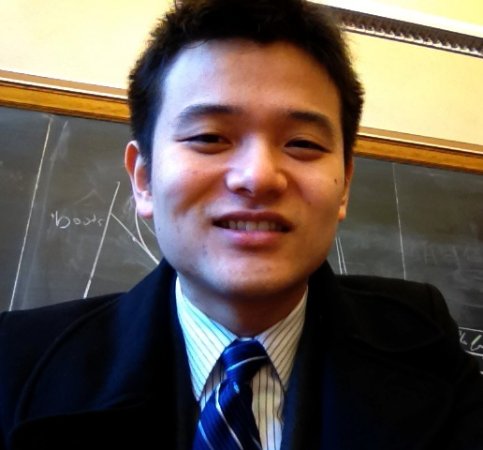Water Wars: Rediscovering the Status Quo in the South China Sea
China Condemns Trump’s South China Sea Stance While Mulling New Maritime Law

Published by The Lawfare Institute
in Cooperation With

China Condemns Trump’s South China Sea Stance While Mulling New Maritime Law

Prime Minister Abe and President Trump joint press conference (Photo: The Independent)
China continued to react critically to the Trump administration’s emerging position on the South China Sea. Responding to a joint statement by President Trump and Prime Minister Abe that confirmed American support for Japanese administration of the Senkaku/Diaoyu Islands, Chinese Foreign Ministry spokesperson Geng Shuang said that “Diaoyu [Island] and its affiliated islands are China's inherent territory. . . We are firmly against Japan's attempt to try to gain the US support for its illegal territorial claims in the name of the so-called mutual defense treaty.” This exchange echoed a similar statement from last week.
Later, responding to reports that the U.S. Navy may carry out more frequent freedom of navigation patrols in the South China Sea, Geng urged the United States “to refrain from challenging China's sovereignty and security and to respect regional countries' efforts to maintain peace and stability in the South China Sea.” He also attributed increased regional stability to hard work between China and her neighbors.
Matching rhetoric with policy, China’s state media announced Beijing will be revising its 1984 Maritime Traffic Law. The proposed revisions would allow Chinese officials to bar foreign ships deemed to threaten “traffic safety and order” from transiting portions of its territorial sea. Additionally, the revisions would require foreign submersibles to alert Chinese authorities and travel on the surface when they enter the territorial sea. These provisions are reminiscent an episode last December, when Chinese officials seized – and later returned—a submersible U.S. drone operating in the South China Sea. The United States, at the time, characterized that seizure as “unlawful.”
Meanwhile, accusations continued to fly over last week’s close encounter between Chinese and American military planes over the South China Sea. Captain Liu Rui, who piloted the Chinese aircraft, claimed that the U.S. pilot “showed off the missiles under a wing of the aircraft when he flew off,” describing it as a “provocative act.” Liu conceded, however, that neither pilot had violated any code of conduct. A Chinese Defense Ministry official stated that Liu had responded “legally and professionally” to the situation, and expressed the hope that Washington would “eliminate the root cause of air and sea mishaps between the two countries.” Pentagon spokesman Captain Jeff Davis commented that the pilots remained in “normal radio contact” and communicated in a “professional” manner.
In Other News…
China
New information was revealed about China’s third aircraft carrier, which is currently under construction. Experts say the Type 002 class carrier will rely on a conventional steam-propulsion jet-launch system, contrary to earlier speculation that it would utilize a more advanced electromagnetic system. Chinese officials also provided an update on its plans to build floating nuclear power platforms in the South China Sea. Wang Yiren, the Vice Director of the State Administration of Science, Technology and Industry for National Defense, highlighted that the power plants will be a priority during China’s next five-year plan.
Meanwhile, Chinese scientists joined an international team aboard an American research vessel that set sail for the South China Sea from Hong Kong. Organized by the International Ocean Discovery Program (IODP), the two-month expedition will gather sediment samples from the ocean floor. China participated in two previous IODP expeditions to the South China Sea in 1999 and 2014.
United States
The US Navy is hoping to conduct more Freedom of Navigation Operations (FONOPs) near Chinese occupied artificial islands in the South China Sea. Defense officials suggested that the FONOPs would be carried out by the Carl Vinson Carrier Strike Group, which is currently deployed in the Western Pacific. The last U.S. FONOP in the South China Sea occurred in October, when a guided-missile destroyer passed near the Paracel Islands. The Navy’s proposal awaits approval by President Trump.
Taiwan
Taiwan has lodged an official protest over the announcement, earlier this month, that revised textbook guidelines would list the Senkaku/Diaoyu Islands as part of Japan’s “inherent territory.” The Taipei Economic and Cultural Representative Office in Japan transmitted the protest, which reiterated Taiwan’s sovereign claims to the islands.
Vietnam
Vietnam condemned the opening of a Bank of China branch in Sansha City, a small town on the disputed Paracel Islands. Vietnamese Foreign Ministry spokesperson Le Hai Binh reaffirmed Vietnam’s “indisputable sovereignty over Hoang Sa (Paracel) and Truong Sa (Spartly) Archipelagos.” According to earlier Chinese state media reports, China’s other major banks have either opened branches in Sansha City or established partnerships with the local government. This opening follows an announcement last month by the mayor of Sansha City that the city would soon offer regular civilian flights to the mainland.
India
New Delhi is discussing the sale of short range surface-to-air missiles to Vietnam, according to the head of India’s defense research agency. This news follows a statement earlier last week from Minister of State for External Affairs General Vijay Kumar Singh expressing support for freedom of navigation in the South China Sea. "Government's position on this issue is very clear. India supports freedom of navigation and overflight, unimpeded commerce, based on the principles of international law, as reflected notably in the UNCLOS,” said Minister Singh. "India believes that States should resolve the disputes through peaceful means without threat or use of force and exercise self-restraint in the conduct of activities that could complicate or escalate disputes affecting peace and stability."
Australia
A squadron of American F-22 Raptors arrived at Royal Australian Air Force (RAAF) Base Tindal in Australia’s Northern territory. The F-22s will participate in “integrated training activities” with the RAAF and be displayed to the public at next month’s Australian International Air Show.
On the diplomatic front, Foreign Minister Julie Bishop took a softer stance on the South China Sea during Chinese Foreign Minister Wang Yi’s visit to Canberra last week. During a press conference, Minister Bishop notably did not mention last year’s judgement in the Philippines v. China South China Sea Arbitration. Bishop’s statement represents a shift from her position last July, which was sharply criticized by the Chinese government, urging all parties to respect the arbitration’s results.
Analysis, Commentary, and Additional Information
The Lowy Institute released a report this week arguing that China’s policy in the South China Sea has become more strategic and less confrontational, with a focus on building China’s regional capacity to a U.S.-centric status quo. Along similar lines, Gregory Poling of the Asia Maritime Transparency Initiative claims that China’s less assertive presence in the region represents a tactical, rather than a strategic, shift. Satoru Mori of Japan’s Hosei University, considers the long-term impacts of China’s developing goals in the South China Sea.
Several analysts have also discussed the role that greater American or Chinese naval presence might play in the South China Sea. Alexander Vuving of the Daniel K. Inouye Asia-Pacific Center for Security Studies, writing in Foreign Policy, argues that the United States should ratchet up pressure on China over the Senkaku/Diaoyu Islands by mimicking China’s “cabbage” defense strategy. Stephen Stashwick predicts increased U.S. naval presence in the region, but questions the objectives that such a move could realistically achieve beyond maintaining the status quo.
Water Wars is our weekly roundup of the latest news, analysis, and opinions related to ongoing tensions in the South and East China Seas. Please email Chris Mirasola with breaking news, relevant documents, or corrections.



.jpg?sfvrsn=d5e57b75_5)


